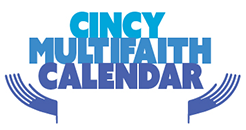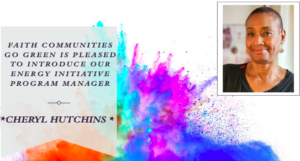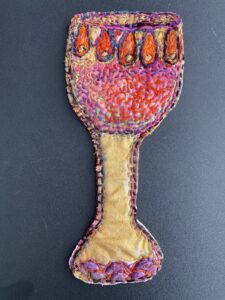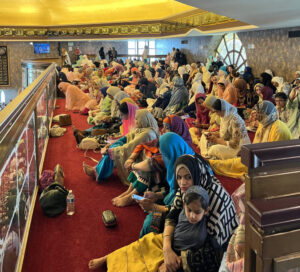Cincinnati, Ohio – For many, this time of year is full of celebrations. Jews celebrate Hanukkah, when Jerusalem was recovered and the Second Temple rededicated. Christians celebrate Christmas, the commemoration of the birth of Jesus. And Pagans celebrate Yule, when the Winter Solstice happens, marking the coming of longer days and shorter nights. For those struggling with homelessness, however, these long and cold nights are not times of celebration but deep struggle. For this reason, the date with the longest number of nighttime hours each year is also known as Homeless Memorial Day and is considered by many a national day of mourning.
Each year in Cincinnati, numbers of unhoused people die from exposure to the winter weather. That is why each year, The Greater Cincinnati Homeless Coalition hosts a memorial service on the longest night of the year, Winter Solstice, to remember those unhoused residents of the city who passed away. “Everyone is welcome. You can come and speak, you can sing, you can be quiet and listen. Come in any way that is meaningful to you” wrote The Homeless Coalition in an invitation for the event.
This year, 175 names were read at a candlelight service held in Washington Park, Over-The-Rhine. This list was compiled by friends, family, and organizations around the city that knew and cared about these residents. The service was attended by dozens of people, including from many faith communities around the city.
Whether or not you attended this year’s service or know those affected by homelessness, there are lots of ways that you can offer support. In Northern Kentucky, the Emergency Shelter of Northern Kentucky welcomes material and cash donations, as well as volunteer support. Visit their website to learn more: https://emergencyshelternky.org/
In Cincinnati, The Homeless Coalition invites community partnerships, donations, and subscriptions to Street Vibes, a newspaper written and distributed by those affected by homelessness. They also host regular community-engagement meetings, where you can learn how to get more involved. Please visit their website to learn more: https://cincihomeless.org/






 Calling all volunteers!
Calling all volunteers! 


 Cincinnati campus of Hebrew Union College-Jewish Institute of Religion is bursting at the seams with new exhibitions! Now open in the Mayerson Auditorium gallery is
Cincinnati campus of Hebrew Union College-Jewish Institute of Religion is bursting at the seams with new exhibitions! Now open in the Mayerson Auditorium gallery is  women, who like Eve, the first Woman of Valor, perpetuate devotion and determination in a myriad of ways. Inspired by selected works in the Skirball collection used by women and by practices performed by women, Scott renders richly colored pieces using fabric, thread, paint, buttons, and beads. This exhibition closes on February 4, 2024.
women, who like Eve, the first Woman of Valor, perpetuate devotion and determination in a myriad of ways. Inspired by selected works in the Skirball collection used by women and by practices performed by women, Scott renders richly colored pieces using fabric, thread, paint, buttons, and beads. This exhibition closes on February 4, 2024. week.
week. mercy, obedience, sacrifice, and service to others.
mercy, obedience, sacrifice, and service to others. share tasty snacks. The morning was marked by a colorful array of diverse ethnic attire, warm greetings, hugs, and joy. Since most Muslims are able to take the day off on Eid, the rest of the day is spent gathering with friends and families, gift exchanges, and scrumptious feasts of biryani, kabobs, koshary, kabsa, sambosas, grilled meats, burgers, along with treats such as baklava, kanafeh, sheer korma, halwa, donuts, pastries and more.
share tasty snacks. The morning was marked by a colorful array of diverse ethnic attire, warm greetings, hugs, and joy. Since most Muslims are able to take the day off on Eid, the rest of the day is spent gathering with friends and families, gift exchanges, and scrumptious feasts of biryani, kabobs, koshary, kabsa, sambosas, grilled meats, burgers, along with treats such as baklava, kanafeh, sheer korma, halwa, donuts, pastries and more.


 Judy Chamberlain and her husband, Bill, took a pilgrimage to Jerusalem in 2010. There, they learned about an interfaith movement called Kids4Peace. Judy was so inspired by what she saw: people of different faiths and backgrounds with plenty of divisions among them coming together to build bridges and create community. She knew Cincinnati needed Kids4Peace. To quote her directly, “There is racism and misunderstanding that lead to myths that build untruths and lead to the development of hate. We could benefit from teaching our kids a different way.” When asked how she got Kids4Peace started she says, “I just started talking to people… to anyone who would listen.” Over time, people did listen like Rabbi Abie Ingber, Rev. Gail Greenwell, Michele Young, Sarah Weis (founder of the Holocaust and Humanity Center), Jackie Congedo of the Jewish Community Relations Council, and nationally recognized Islamic leader Shakila Ahmed, among others. Together with Judy at the helm this interfaith team offered the first Kids4Peace Interfaith Camp in 2016.
Judy Chamberlain and her husband, Bill, took a pilgrimage to Jerusalem in 2010. There, they learned about an interfaith movement called Kids4Peace. Judy was so inspired by what she saw: people of different faiths and backgrounds with plenty of divisions among them coming together to build bridges and create community. She knew Cincinnati needed Kids4Peace. To quote her directly, “There is racism and misunderstanding that lead to myths that build untruths and lead to the development of hate. We could benefit from teaching our kids a different way.” When asked how she got Kids4Peace started she says, “I just started talking to people… to anyone who would listen.” Over time, people did listen like Rabbi Abie Ingber, Rev. Gail Greenwell, Michele Young, Sarah Weis (founder of the Holocaust and Humanity Center), Jackie Congedo of the Jewish Community Relations Council, and nationally recognized Islamic leader Shakila Ahmed, among others. Together with Judy at the helm this interfaith team offered the first Kids4Peace Interfaith Camp in 2016.